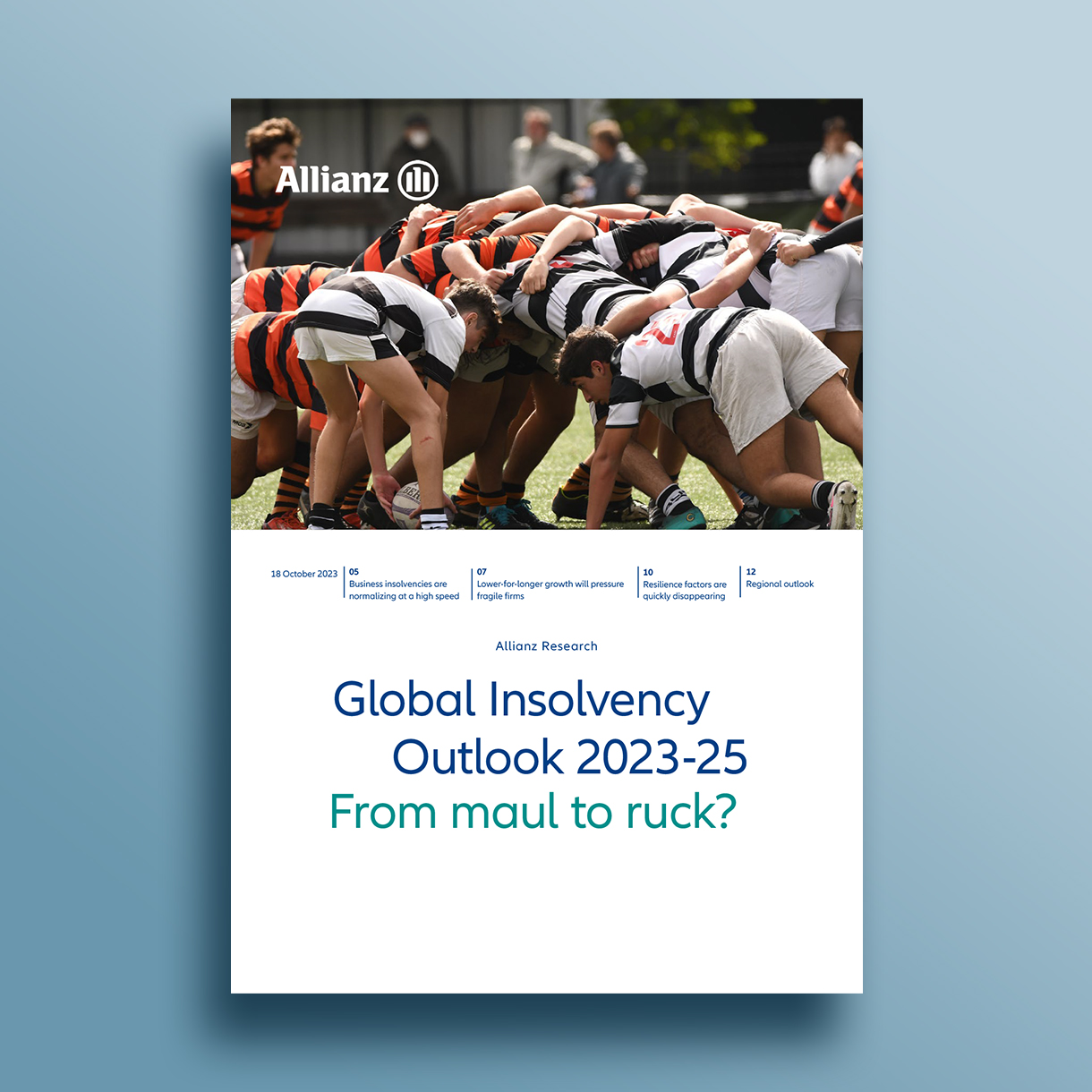Global Insolvency Outlook:
Navigating the economic tightrope
Downloads
Imagine a daunting high-wire act. The performer, precariously balancing on a thin rope, represents businesses in 2023 as they face an unenviable financial juggling act. In a world of economic unpredictability, sectors like hospitality, transportation, and retail are navigating an economic tightrope.
In their newly published report "Global Insolvency Outlook 2023-25: From maul to ruck?", Allianz Research explores the current economic landscape, profitability woes, and potential insolvency that grips these industries.
The 2023 cash dilemma
Faster cash erosion than economic growth
Profits under pressure
Rising costs and shrinking profits
Interest rates and worries about solvency
Struggles in dealing with insolvency and payments
The implications for businesses and SMEs
What lies ahead for business insolvencies
Looking forward, Allianz researchers expect that three out of five countries will return to pre-pandemic business insolvency levels by the end of 2024. By the end of 2023, most advanced economies will have normalized business insolvencies, with a significant increase seen in several countries. Further increases in business insolvencies are expected in 2024, with growth figures needing to double to stabilize on both sides of the Atlantic, which likely not happen before 2025.
In the challenging landscape of 2023, it's evident that diverse sectors face liquidity and solvency challenges. With broad-based revenue declines, dwindling profitability, and the specter of rising insolvencies, businesses must navigate a complex environment as they strive to adapt and thrive.

Related Links
About Allianz
** As of December 31, 2023.



